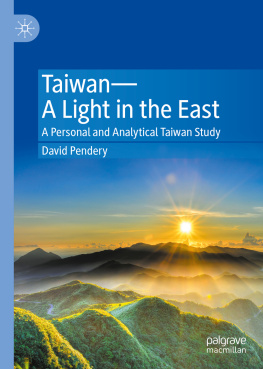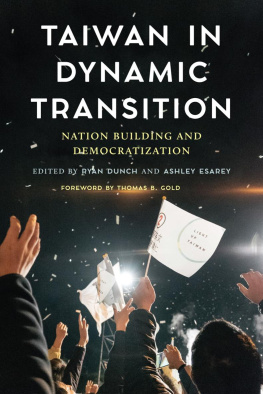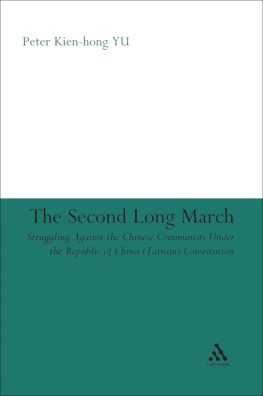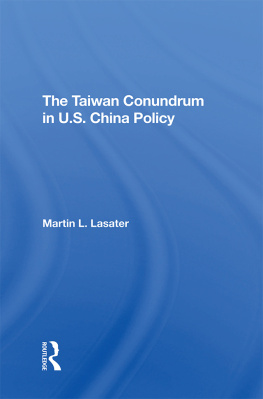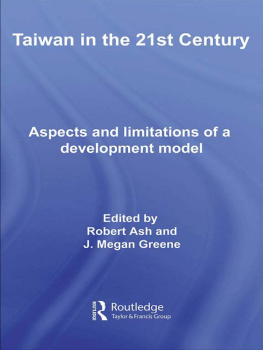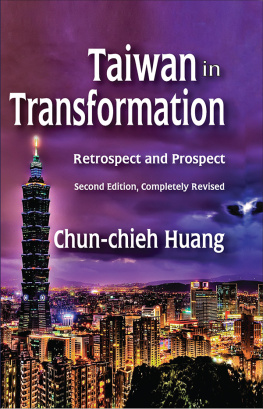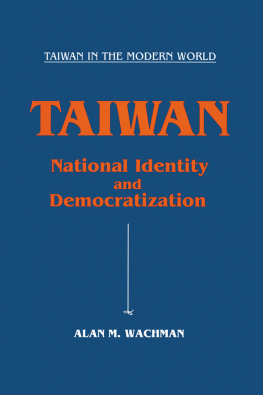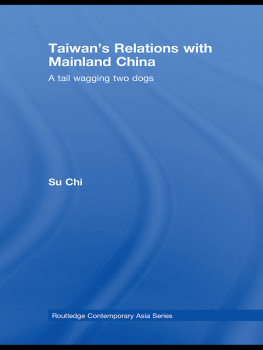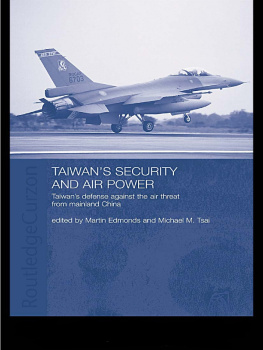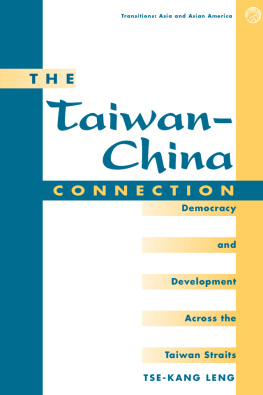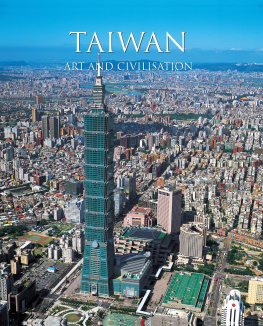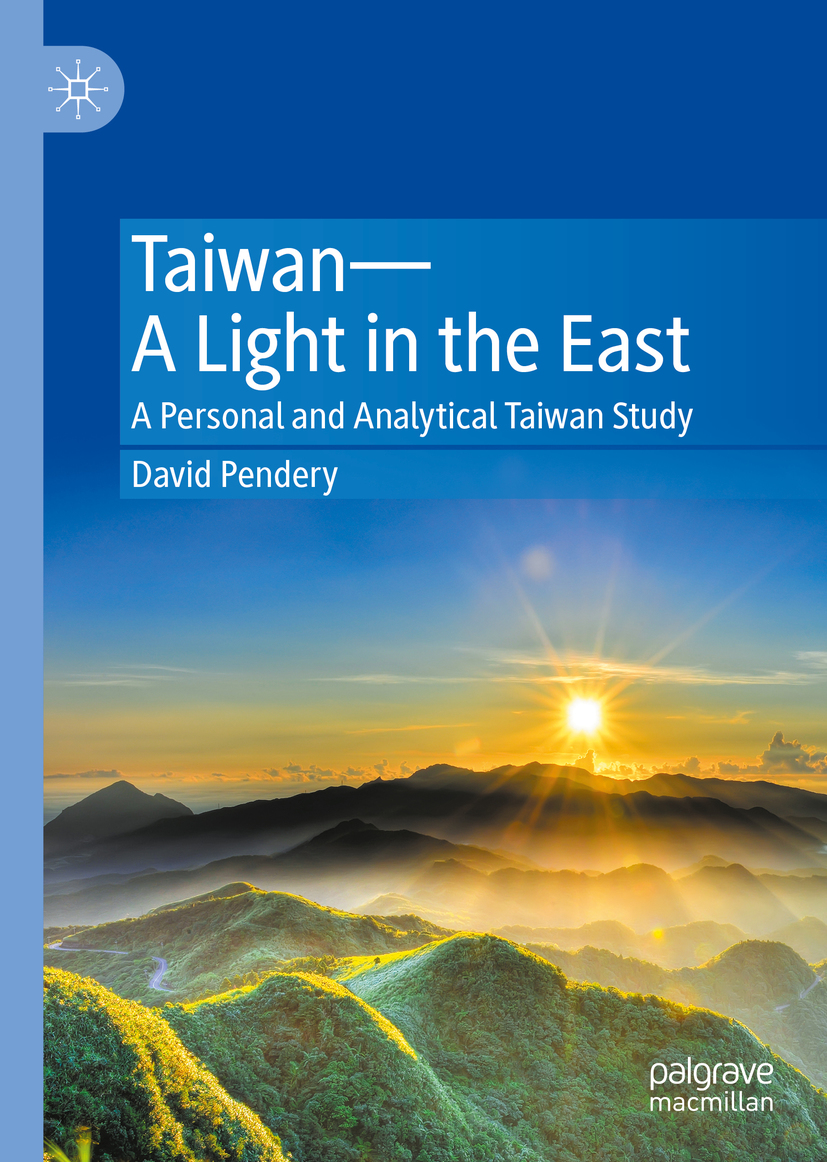David Pendery
National Taipei University of Business, Taipei, Taiwan
ISBN 978-981-15-5603-6 e-ISBN 978-981-15-5604-3
https://doi.org/10.1007/978-981-15-5604-3
The Editor(s) (if applicable) and The Author(s), under exclusive license to Springer Nature Singapore Pte Ltd. 2021
This work is subject to copyright. All rights are solely and exclusively licensed by the Publisher, whether the whole or part of the material is concerned, specifically the rights of translation, reprinting, reuse of illustrations, recitation, broadcasting, reproduction on microfilms or in any other physical way, and transmission or information storage and retrieval, electronic adaptation, computer software, or by similar or dissimilar methodology now known or hereafter developed.
The use of general descriptive names, registered names, trademarks, service marks, etc. in this publication does not imply, even in the absence of a specific statement, that such names are exempt from the relevant protective laws and regulations and therefore free for general use.
The publisher, the authors and the editors are safe to assume that the advice and information in this book are believed to be true and accurate at the date of publication. Neither the publisher nor the authors or the editors give a warranty, expressed or implied, with respect to the material contained herein or for any errors or omissions that may have been made. The publisher remains neutral with regard to jurisdictional claims in published maps and institutional affiliations.
Cover illustration: Taiwan Nans0410 / Getty Images
This Palgrave Macmillan imprint is published by the registered company Springer Nature Singapore Pte Ltd.
The registered company address is: 152 Beach Road, #21-01/04 Gateway East, Singapore 189721, Singapore
For Taiwan and the Taiwanese, a land and people I love.
For my wife Hope, who helps me so much.
For my mother, the branch does not fall far from the tree.
Foreword
I was very honored when David Pendery approached me in November 2019 and asked for an interview on his book project on Taiwan history, politics, life, culture, education, identity, and the future prospects in Taiwan.
At that time, I had just left Taiwan after one decade of teaching and research on the island, and I remained deeply involved with Taiwan Studies as an associate fellow at the European Research Center on Contemporary TaiwanA CCK Foundation Overseas Center (CCKF-ERCCT) at Eberhard Karls Universitt Tbingen, Germany. I am also a board member and founding member of the European Association of Taiwan Studies. I feel a deep commitment to the island, having friends and colleagues in Taipei, Kaohsiung, and Taiwan, and many other associates working on Taiwan in academia all over the world.
When David approached me, I wondered how he would deal with his task, as it seemed that he wanted to cover all aspects of history and life in Taiwan. Later I realized that David was also an editorial writer for the Taipei Times, the only English newspaper with a print edition in Taiwan, and that he was not writing a multi-volume work covering all the above-mentioned topics, but had chosen more a essayistic/feuilletonist approach to Taiwan, based on his experience, and also his teaching and various writings, both academically and for the newspaper. I then became even more fascinated, having taught various courses on modern Taiwanese history, nationalism, gender, and civil society in Taiwan and other Chinese societies around the world. David describes his own journey to becoming Taiwanese, in his first Taiwan book, Something Super: Living, Learning and Teaching in Taiwan, and yet more meticulously in this book, Taiwan: A Light in the East, A Personal and Analytical Taiwan Study.
This book covers the impressive uniqueness of Taiwan, the nations vibrant society that emerged after the lifting of Martial Law in 1987, the islands struggles with its past and its colonial history, and its unique current geopolitical situation. These are dealt with carefully in the chapters Taiwan: History, Politics and Culture and Identity: Being Taiwanese.
In various chapters David discusses the Gordian knot of identity politics in Taiwan, and the sovereignty question, which is linked to the dominant one-China policy and also to the fact that, unlike other parts of the world striving for independence, Taiwan is in almost all aspects in no way controlled by Beijing, which gives the island a much larger leeway to develop its own pathalthough admittedly the final outcome is unknown. David lets readers take part in his well-articulated thoughts, describing the likelihoods, contingencies, and the risks presented to the island.
But there is another aspect which makes the book worth reading: his personal involvement, his becoming Taiwanese himself, his fascination and love for the island. All of this complexity and elaboration has not blinded David to the real problems facing Taiwan, not least the nations quest for an independent identity, its chaotic political situation, and these days dealing with the coronavirus epidemic. But at the same time he describes more commonplace problems, such as when foreigners attempt to become an integral part of society merely by obtaining a drivers licenses, or the challenges of actually becoming an ROC citizen.
More of Davids analysis deals with education in Taiwan. Having taught on the island for a decade, I feel with David when he describes the atmosphere in the universities, which still need improvement to encourage students to be more creative and not be bound by old Confucian traditions or the hierarchical bureaucracy of the ministry of education.
I highly recommend this book for everybody living on the island and interested in Taiwan in general. Taiwanese who are fluent in English will see their beautiful island through the eyes of a foreigner who has fallen in love with the island. In addition, I think those academically interested in Asia and East Asia should have a look at this book and find similarities and differences when comparing the history, society, and the personal life of a foreigner in nations in this part of the worldwhether Taiwan, South Korea, Thailand, Malaysia, Mainland China, Hong Kong, Macau, or Singapore. Enjoy this excellent work examining these fascinating topics.
Jens Damm
May 2020
No acknowledgments are stated here. The work is entirely the work of the author, with no co-authors.

